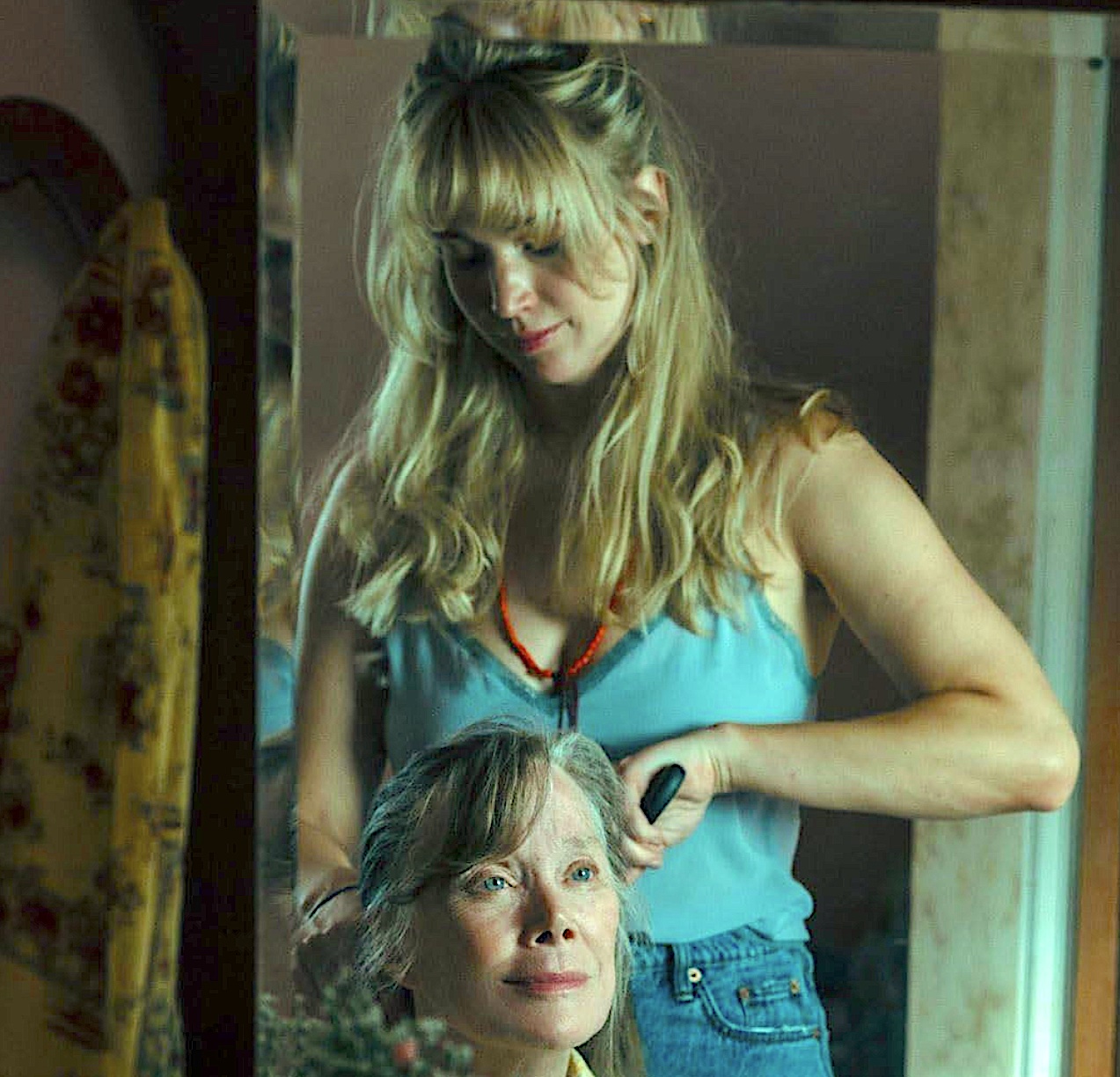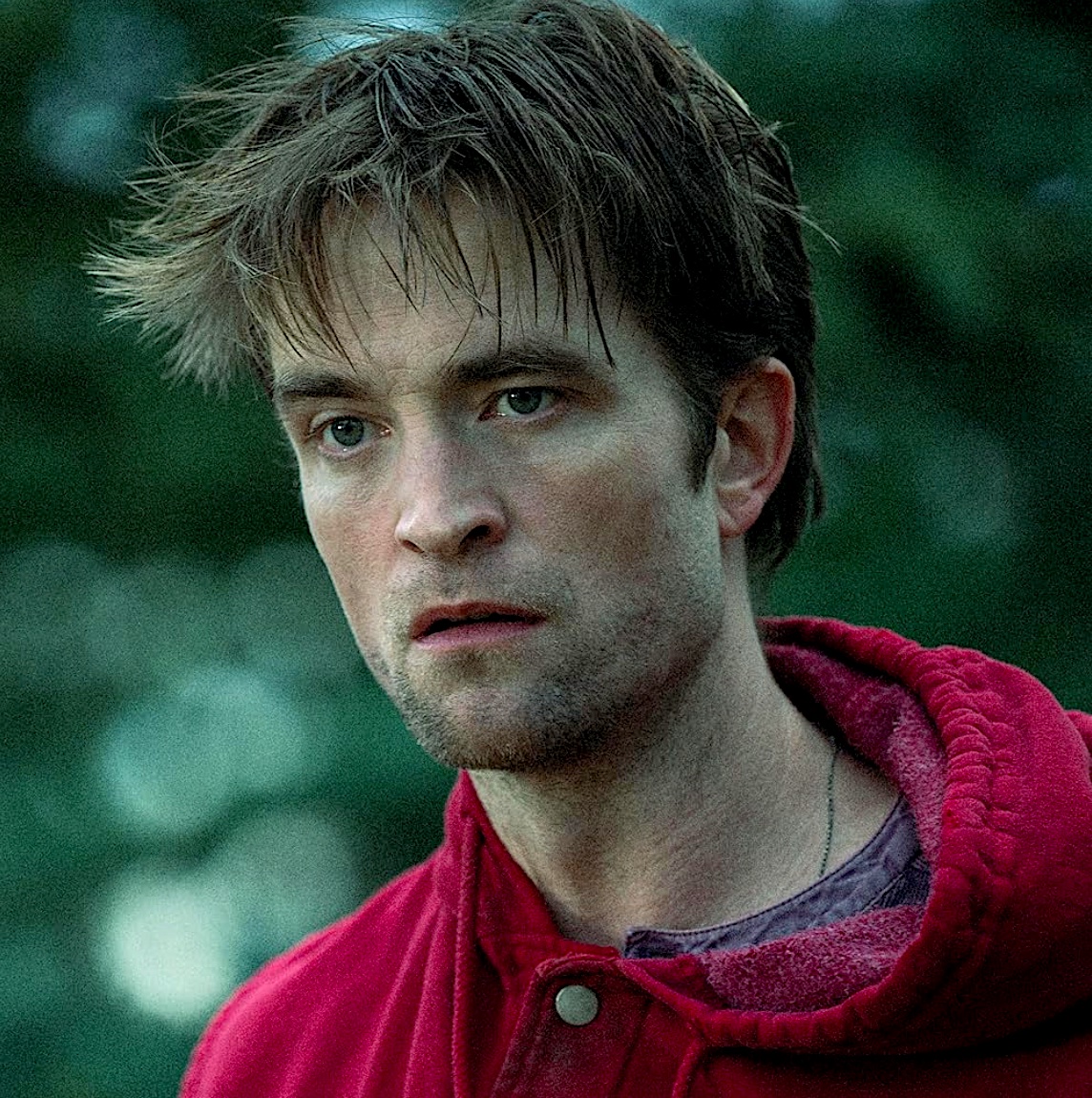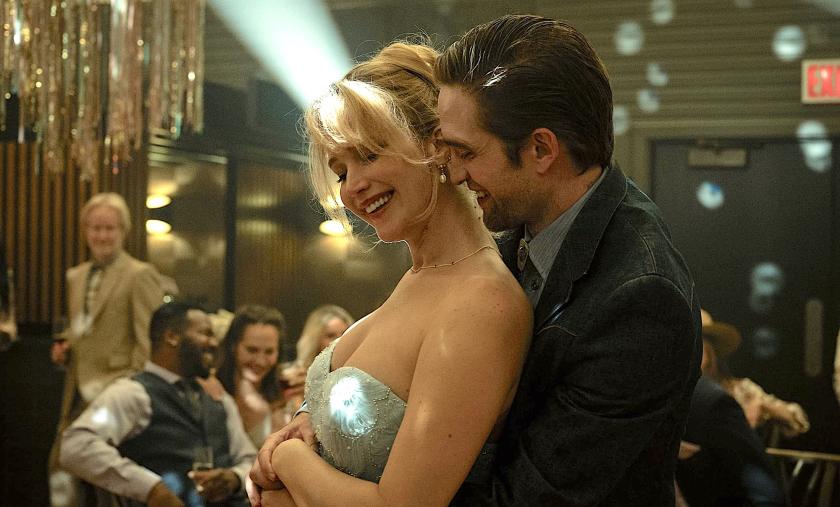Directed by Lynne Ramsay and based on the book by Ariana Harwicz, Die My Love is an unsettling dive into the disturbed psyche of Grace, played with mercurial brilliance by Jennifer Lawrence. Grace is a new mother still struggling to get accustomed to the demands of her baby, and with her husband Jackson (Robert Pattinson), she has moved into the house that belonged to Jackson’s dead uncle, out in the remote backwoods of Montana.
The plan is for Jackson to fix the place up, when he can get around to it. It probably seemed like a good idea at the time, with Jackson’s parents living nearby to provide a bit of support, even if his dad Harry (Nick Nolte) is suffering from dementia. That’s partially compensated for by the presence of Sissy Spacek as his mother Pam, who seems to feel a natural empathy for Grace and enjoys an easy-going rapport with her (Lawrence and Spacek pictured below).
 But rather than basking in a relaxing lifestyle among bucolic meadows and woodland, Grace finds herself frequently alone while Jackson works long hours driving out to clients to carry out maintenance work, and is gradually losing her grip on reality. The rural surroundings come to seem bleak and menacing rather than reassuring, and an almost spectral visit by a wild horse perhaps mirrors something of Grace’s inner state.
But rather than basking in a relaxing lifestyle among bucolic meadows and woodland, Grace finds herself frequently alone while Jackson works long hours driving out to clients to carry out maintenance work, and is gradually losing her grip on reality. The rural surroundings come to seem bleak and menacing rather than reassuring, and an almost spectral visit by a wild horse perhaps mirrors something of Grace’s inner state.
The film’s takeaway summary is “young mother afflicted by post-partum psychosis”, and undoubtedly that’s part of it, but the viewer is also left to ponder whether Grace has always suffered from fragile mental health, and the stresses of motherhood have exacerbated her condition. At one point, she says that her parents were killed in an air crash, which could explain a lot, but we never get to learn whether it was true or not.
For instance, there’s a flashback scene to Grace and Jackson’s wedding, where, at the height of the evening’s post-ceremony revelry, a drink-befuddled Grace retires to their hotel room and becomes embroiled in a pointless argument with the concierge about whether he’ll bring some ice to her room (he says get it from the machine in the corridor). The scene has no specific meaning, but helps to suggest the way Grace is somehow always at an angle to her surroundings.
Her relationship with Jackson (pictured below) veers between young lovers’ bliss and explosions of paranoia and aggression. His long work absences feed her suspicions that he’s having long-distance affairs with other women, and she’ll become sullen and resentful. Then they’ll be out driving, and she’ll be overcome by sexual frustration, and she’ll demand that they have to do it right now in the front seat. Jackson is trying his best, but Grace is like a force of nature whose controls have gone haywire.
 Not that there aren’t moments of nihilistic humour, too. Grace develops a habit of pushing her baby for miles across the countryside to visit the store at the gas station. The assistant starts cooing over the baby, and asks about his name. “No, we decided not to name him,” Grace snarks, before telling the other woman to shut up and do her job.
Not that there aren’t moments of nihilistic humour, too. Grace develops a habit of pushing her baby for miles across the countryside to visit the store at the gas station. The assistant starts cooing over the baby, and asks about his name. “No, we decided not to name him,” Grace snarks, before telling the other woman to shut up and do her job.
An eclectic soundtrack lends the film an array of intriguing colours. John Prine and Iris Dement singing “In Spite of Ourselves” – “She’s my baby, I’m her honey / I’m never gonna let her go” – is like an ironic mirage of the life they ought to be living, while a deafening blast of Eric Clapton’s Cream playing “Crossroads” is like a metaphorical car crash. Boldly, there’s a version of Joy Division’s “Love Will Tear Us Apart” over the end credits, sung by director Anderson herself. In the end, the message might be, “if it’s broke, you cain’t fix it.”















Add comment